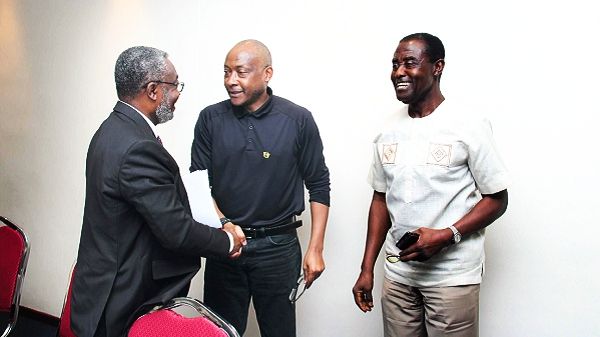
Four partner to make sickle cell medication affordable, easily available
Sickle cell patients in the country can heave a sigh of relief as the international drug manufacturing company, Novartis, has slashed the price of hydroxyurea, one of the drugs considered most effective for the treatment of the condition, for patients in Ghana.
This is part of a pilot programme to expand access to more effective medications for sickling positive patients, help collate data on the number of people with the disease and for a subsequent rollout to other African countries.
Advertisement
A month’s dosage of the drug costs between GH¢150 and GH¢200 on the local market, but with the intervention, the same dosage can be bought at GH¢52.
Hydroxyurea helps increase haemoglobin and decrease the number of attacks in a sickle cell patient.
Ghana becomes the first country to roll out the use of the drug on a national scale and so far 5,600 doses have arrived in the country, with an expected 40,000 more to arrive in September this year.
MoU
A memorandum of understanding (MoU) to effect the pilot project was signed between representatives of the company and the country in Davos, Switzerland, in January this year.
The MoU was to create a public private partnership to set up 16 centres of excellence in all regional hospitals across Ghana for both new-born diagnosis and treatment.
The partnership focuses on treatment, diagnosis, research and advocacy, and when successful, the programme will be scaled up to 10 other African countries in the next four years.
As part of the pilot programme, a doctor, a nurse and a pharmacist each from 11 health facilities across the country have so far gone through a two-day training on how to use the drug.
The pilot programme is a collaboration among the Ghana Health Service (GHS), the Ministry of Health (MoH) and the Sickle Cell Foundation of Ghana.
Pilot programme
At a press conference in Accra yesterday to announce the pilot programme, the Director General of the GHS, Dr Anthony Nsiah-Asare, said the partnership would help establish standard guidelines for the treatment of the sickle cell disease (SCD).
Under the MoU, he said, physicians, nurses and pharmacists who dealt with patients would be trained to handle the centres of excellence that would be established.
He said the partnership would also help bring about quality in service to achieve Universal Health Coverage (UHC).
Dr Nsiah-Asare said as part of the pilot, all newborns would be screened to put those with sickle cell on early treatment.
He said in Ghana, many children died due to sickle cell but that was not captured because their conditions were not known.
Novartis
The Head of Global Health and Corporate Responsibility at Novartis, Dr Patrice Matchaba, who also addressed the news conference, said when the drug was scaled up to become a national programme, the cost could further be reduced, so that more people could have access to it.
He said the success of the pilot programme was very crucial, as it would have a ripple effect on the roll out to other countries.
Dr Natchaba hinted that Novartis was working on a children’s formula for easy administration.
Foundation
The President of the Sickle Cell Foundation, Professor Kwaku Ohene-Frempong, said it was the hope of the foundation that the National Health Insurance Scheme (NHIS) would cover the use of the drug.
He said interventions in the treatment of SCD were not beyond the country, except that the disease was not being treated in a modern way.
He expressed disappointment at the fact that apart from the Komfo Anokye Teaching Hospital in Kumasi and the Korle Bu Teaching Hospital in Accra, testing for sickle cell was not done at birth in other areas.



